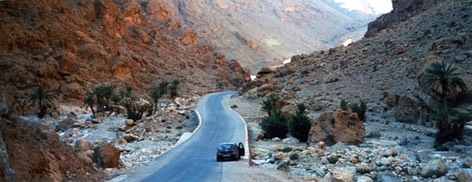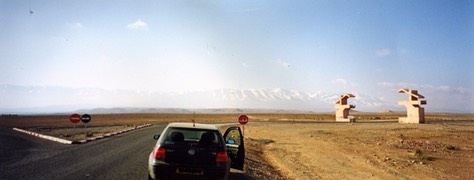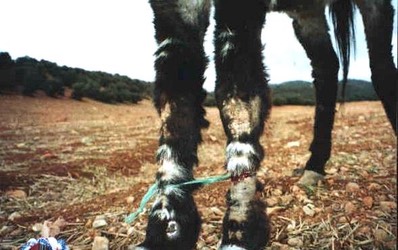by Anthony C Heaford, December 2018

On Monday 15 December 2018 the bodies of two female Scandinavian tourists were found in the Atlas mountains near Marrakesh. A video said to show the brutal beheading of one of the victims with a kitchen knife was released:
"The PET (Danish intelligence service) confirms that a video circulating on the internet shows the murder of one of the two women killed in Morocco," the authorities said in a statement on Thursday.
It’s fifteen years since I was last in Morocco but I have a fair idea where some elements of this most recent attack may have started. It possibly began with the sentiments being shared by a Moroccan Jihad to whom I was introduced to in 2004, or maybe with the sense of burning injustice harboured by a boy whose eight-year-old brother we both watched dying on the pristine tarmac of a modern toll expressway to the capital Rabat.
There is no excuse or justification for the brutal act of terrorism that has been perpetrated against the two tourists. But we do still need to understand the attacker’s reasoning to have justified such brutal acts in their own minds. I can’t account for every event or influence in the lives of the attackers, but I can share my experiences in Morocco that may give insight to those asking themselves “why?”.


In 2003/04 I spent five months in Morocco as part of a road trip that took me from Manchester to Marrakesh and back. I’d holidayed there annually since 1999, alternating between surfing the Atlantic coast and trekking solo in the Atlas mountains bordering the Sahara. I had grown to love the country, culture and people and decided to try to ‘give something back’. I became a self-funded volunteer with a British charity that cares for working animals (principally donkeys and mules) in more remote and impoverished areas.
Khemisset, a small town 100-km east of the capital Rabat was my home for much of this time. I was working at the charity’s equine sanctuary in town and socializing and getting to know the locals as best I could outside work. There was high youth unemployment and an established sense of despondency that conveyed this wasn’t a new economic or social situation for them, and it was getting worse, not better.
The best way I can convey that despondency to you is by recounting what I learnt during my voluntary work and wider travels in Morocco.
I learnt that when people struggle to feed or send their children to school then the welfare of their working animals is not their priority. The ‘charity’ we offer them, however well intended, will only ever be a sticking plaster on the gaping wound that is the social, political and economic injustices of the global system we have created

